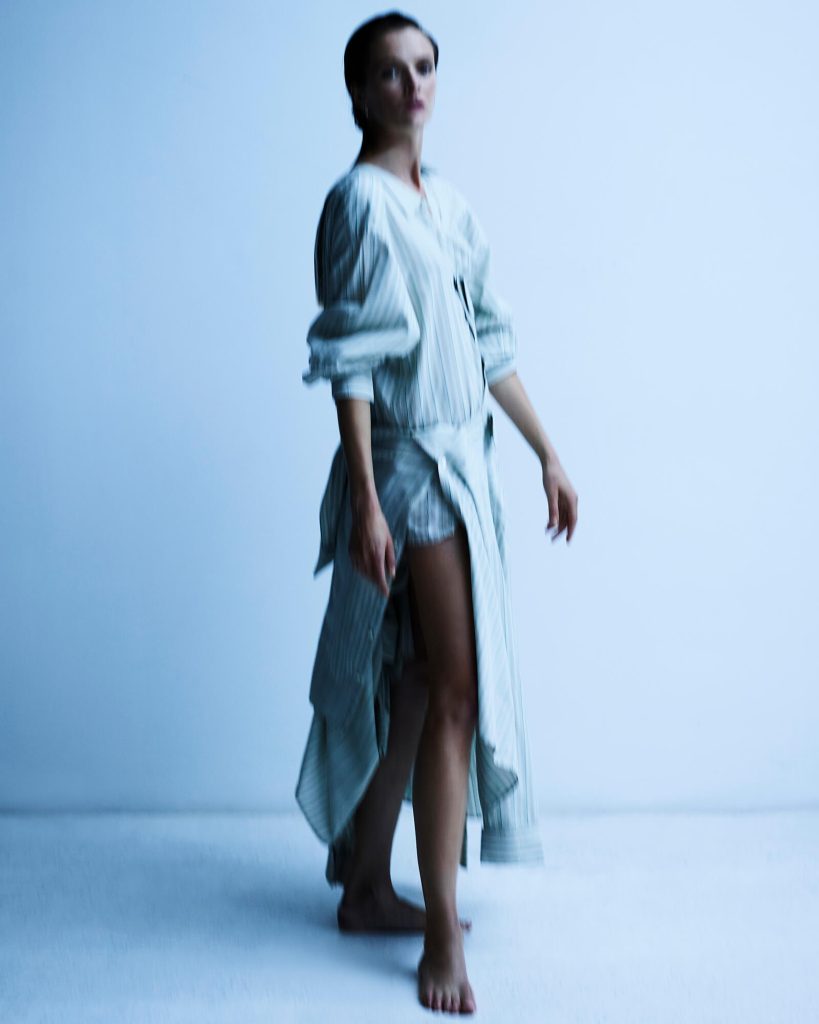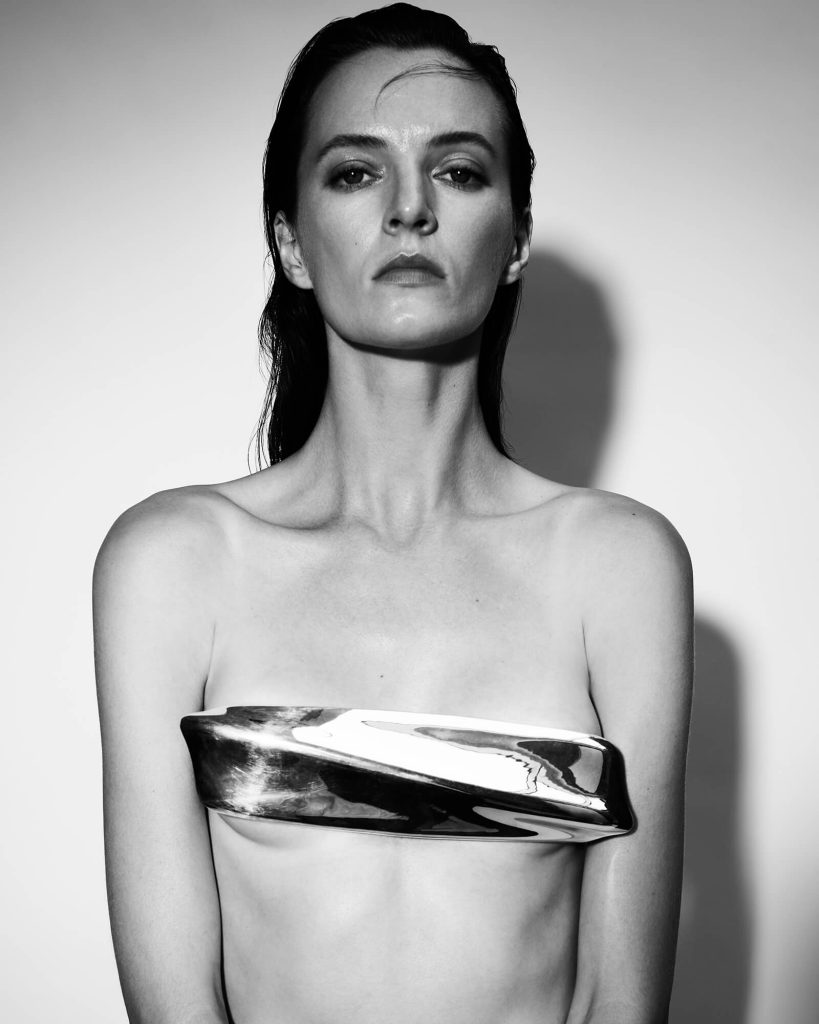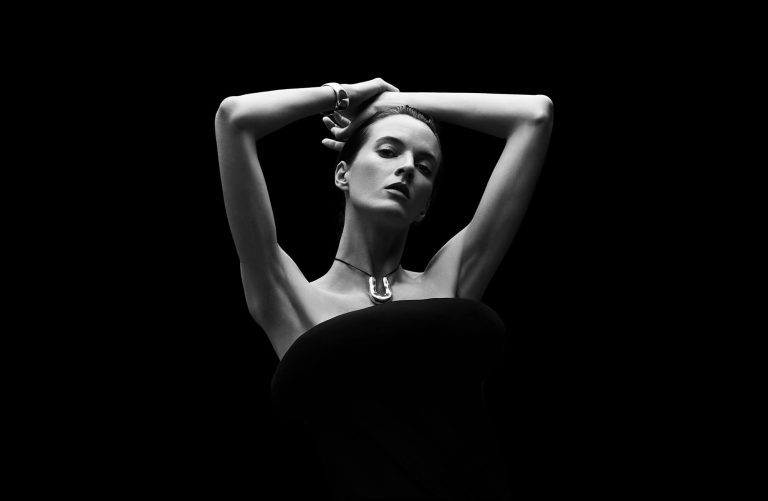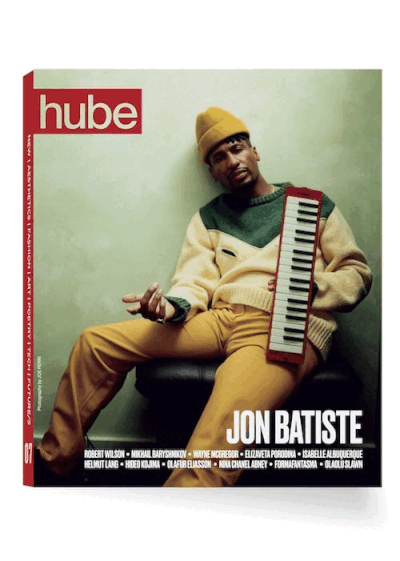Exploring the world of high fashion, hube delves into the story of Daria Strokous. Her refined and elegant presence has graced the pages of prestigious magazines and adorned the catwalks of coveted fashion houses. With an illustrious career that includes appearances on the runways of Prada, Balmain, and Ralph Lauren, the model has firmly established her place in the fashion world.
We had a rare opportunity to sit down with Daria and trace her journey from her debut in Italy to the ongoing presence at Fashion Weeks in Paris, London, Milan, and New York. Beyond the catwalk, Daria has discovered her passion in the cinematic realm, where she explores the art of storytelling and the depths of human emotions. Navigating through the realms of fashion and filmmaking, hube asked Daria about her vision for the industry’s evolution, her perspective on the fusion of technology and fashion, and her personal understanding of the complexities of the human spirit.
Join us on this journey into the mind of the outstanding Daria Strokous, where glamour meets intellect, and the boundaries of creativity are ever-changing.

Jewellery ELSA PERETTI x TIFFANY & CO

Skirt KUA LI
Tights WOLFORD
Shoes HEREU
Jewelry AGMES
hube: To those outside it, the world of fashion seems an enchanted space, one of fairy tales and magic. Many people are drawn to work in fashion because of such an impression. How did you feel when you first got into the industry?
Daria Strokous: I always viewed fashion as art. When I started modelling, I dove into the world of photography books and started collecting magazines and images that inspired me. Getting to enter the world behind the scenes at photoshoots and fashion shows was certainly a revelation. As it turned out, the fairy tale was carefully constructed. Or, sometimes, the best images were the result of a lucky mistake. But I have always made sure to seek art and magic in fashion. I noticed that the most beautiful designs and creative decisions always come from an imperceptible moment of inspiration that visits everyone in the room, sort of like the “aha” moment, when everyone suddenly gets very excited and, most importantly, agrees on one thing.
h: Is there a lesson from your early days in fashion that has helped you throughout your career?
DS: I learned that, perhaps, the most important thing to do early on was to find my centre. The fashion industry is a huge machine, things move fast and decisions are made every moment. Everyone involved is from a creative field, so things can get very emotional. If you accept your worth, you won’t be derailed by rejection. If you set a particular goal in your career, [having a] hectic schedule, other people’s demeanor, and inconveniences won’t bother you. I also think that as soon as you discover your boundaries and goals, it is much easier to see that others around you have their own things they are battling with. From that comes respect and understanding. So, instead of spending the day on set waiting to go home, you can join others in a common pursuit of creativity, even if that means you end up freezing in a little dress out in some field in November, or waiting for the team to change the set for hours. This industry is not for those that don’t know what they want.
h: Fashion shows have always been performances. Today, a new level has been reached with designers using new technologies, robotics, and numerous digital tools in their shows. How do you feel about this? Do you find such innovations inspiring?
DS: I think we all get excited about new technology, so it is inevitable that the fashion industry tries new creative solutions. When it comes to fashion shows, however, I believe that a model instils a certain energy “into” an outfit, and that the best way to experience fashion is in person. Humans get so much subconscious information from one another and the best models know what emotion or state of mind to project outward while walking in a show. Digital distortion of the image has also gotten us to a point where self-image is being heavily discussed in the field of mental health. I think the human tendency to anthropomorphise everything hints at our innate need to relate images to our own selves, so we ultimately relate best to a real person. That is, until we cross the uncanny valley. I wonder what will happen after that.

